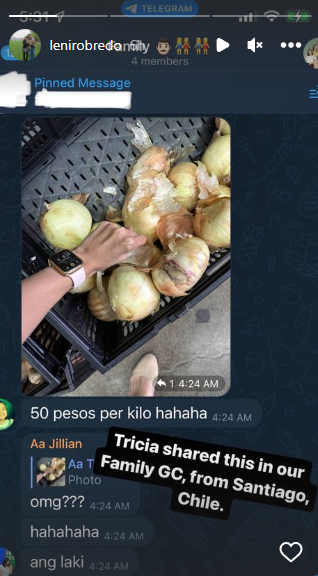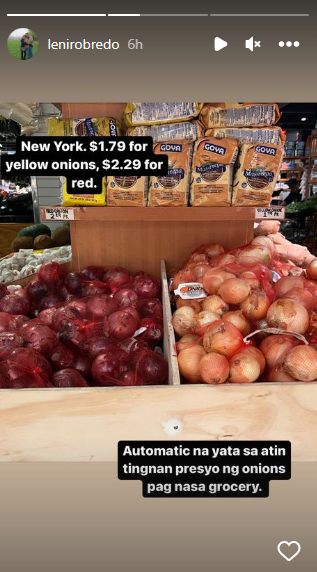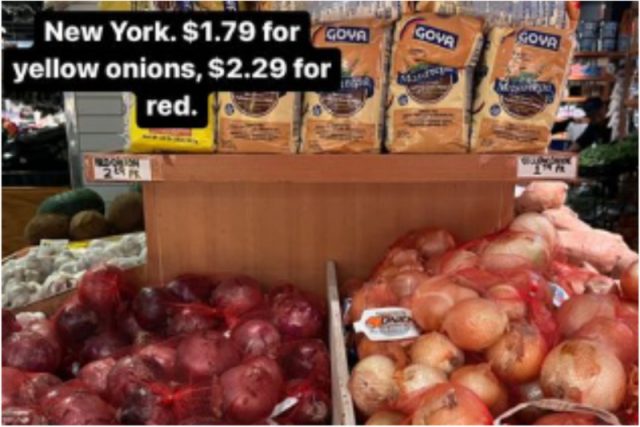Onions are cheaper in Chile and in New York, United States as compared to the Philippines.
This was based on the Instagram Stories of former Vice President Leni Robredo who shared photos of these commodities with her followers on January 17.
One of the posts was a screenshot of their group chat where Tricia sent a snapshot of her grocery basket filled with large onions.
Tricia said in the chat that the onions were P50 per kilo in Santiago City, Chile.

Robredo also shared her own photo of a market in New York where the yellow onions cost $1.79 (P98.25 in Google’s currency exchange). The red variety, meanwhile, cost $2.29 (P125.70 in Google’s currency exchange).
She also placed a text on the photo, which reads: “Automatic na yata sa atin tingnan presyo ng onions pag nasa grocery.”

Former senator Kiko Pangilinan, Robredo’s running mate during the last campaign season, added that onions only cost P58 in Thailand.
Pangilinan said this in a quote retweet to a report about the former presidential candidate’s post.
“Ganun din po ako ma’am @lenirobredo. In Thailand, halos P58 lang per kilo ang presyo ng sibuyas,” he said.
Ganun din po ako ma’am @lenirobredo
In Thailand, halos 58 PHP lang per kilo ang presyo ng sibuyas. https://t.co/elaS8wQJ45 pic.twitter.com/5p5Dg8MLXC
— Kiko Pangilinan (@kikopangilinan) January 17, 2023
Last December, a price monitoring website called Global Product Prices recorded onion prices in the Philippines as the most expensive in the world.
READ:‘Most expensive globally’: Filipinos cry over onion price at P300 per kilo
Since last year, the Philippines has been experiencing a shortage of onion and garlic, both common ingredients in most Filipino meals.
The situation further impacted local eateries and branches of international food branches.
Filipino customers have recently reported about their meal orders getting less or no onions, especially those that require onions for added flavor.
These include sisig meals, burgers and pizzas.
RELATED: ‘Sisig without onions?’: Pinoys scratch heads as their meal orders become onion-less
Some Filipinos in other countries also resorted to bringing onions as “pasalubong” or gifts to their families back home given that the crop is far cheaper there.
RELATED: Can Philippine inbound travelers bring home onions as pasalubong?
In a feature story at Time Magazine, it was noted that the value of onions in the country has surpassed the daily minimum wage of workers in Manila and the costs of meat per kilogram.
READ: ‘Priced higher than meat, minimum wage’: Philippine onion crisis lands TIME feature (philstar.com)










